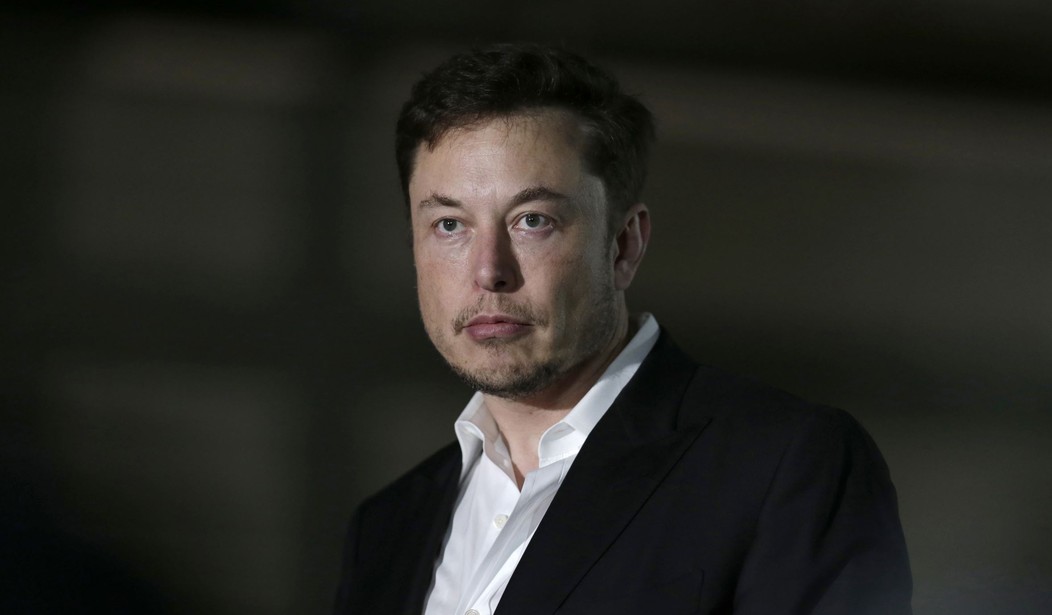The growing sloppiness of SpaceX, Elon Musk’s rocket company, is quickly eroding the goodwill it has garnered from its governmental backers. The discovery of pervasive fraud within the company’s supply chain is the latest example of this trend. On May 22, the FBI announced its intent to prosecute an individual accused of falsifying dozens of inspection reports for parts used by SpaceX. These forged reports, which slipped by right under the company’s nose, allowed at least 76 potentially defective rocket components to be used in national security-level missions.
Clearly, an oversight that severe is unacceptable. It no doubt shakes the foundation of trust SpaceX has built as a reliable government contractor, as purportedly 10 missions could have resulted in catastrophic failure if the rocket components failed. This isn’t the first time SpaceX has demonstrated an alarming degree of ineptitude, either.
Late last year, SpaceX’s CEO Elon Musk admitted the reason why his company was not selected to receive a contract under the Air Force’s Launch Service Procurement (LSP): SpaceX dropped the ball. Apparently, SpaceX lost a multi-million-dollar opportunity for no other reason than because it “had written a poor proposal that ‘missed the mark.’”
In two separate but recent incidents, SpaceX failed to pay close attention to the products it was releasing. For a company as well-respected and established as SpaceX, that amateurish behavior rings as uncharacteristic. What changed? While SpaceX as a company has remained largely consistent, its leader has not. Over the last two years, Elon Musk has faced growing pressure to dedicate his time, attention, and resources to his other business venture, Tesla. Musk has overextended himself, and SpaceX appears to be suffering as a result.
Recommended
This, of course, isn’t to say that Musk is actively sabotaging SpaceX. Rather, his priorities are simply more aligned with the interests of Tesla. For Musk, choosing what business to prioritize is a calculus of reward and risk. Currently, Tesla has more of both.
As the head of Tesla, if Musk manages to get the electric car company operating at peak capacity, he stands to profit enormously—more than any CEO ever has before. According to a New York Times analysis, Musk’s 2018 compensation package totaled a mind-boggling $2.3 billion. That’s more than the world’s next 65 highest paid CEOs combined! It may appear absurd to value a single individual so highly, but it was nevertheless a calculated decision.
In describing the compensation package, Tesla made its incentive structure clear. According to an official statement from the company’s Board of Directors, the award was designed to “motivate Mr. Musk to continue to not only lead Tesla over the long term, but particularly in light of his other business interests, to devote his time and energy in doing so.” If SpaceX’s recent floundering is any indication, it would appear that the Board’s plan is coming to fruition.
But Tesla did more than just provide Musk with globs of cash to stick around; to a degree no other company has yet attempted, Tesla explicitly linked Musk’s pay to Tesla’s performance. When Tesla announced its multi-billion-dollar award for Musk in January 2018, it was hailed as a bold experiment, fitting of a visionary entrepreneur, but it wasn’t structured as a typical CEO salary. Instead, the package was built in such a way that Tesla would have to reach highly ambitious milestones for Musk to get paid at all.
Tesla’s market capitalization is now $35 billion. For Musk to gain all the options in the contract, the company’s market value would have to increase 18 times over, to $650 billion. Musk has a long way to climb, but if things go south, the fall is equally daunting. If Tesla fails to perform, there’s no golden parachute for Musk to float to safety. He would receive nothing.
Undoubtedly, Musk is playing a high-risk, high-reward game with Tesla. It makes sense, then, that the business mogul would prioritize the concerns of his electric car company, even at the expense of SpaceX. And with the recent struggles Tesla is facing, the disparity is only growing more conspicuous. As Musk ostensibly devotes more time and effort into preventing Tesla’s collapse, SpaceX’s performance is beginning to slip.
Tesla may be to blame for SpaceX’s sloppiness, but it is Musk who may want to reexamine his priorities. America pays the price when a company like SpaceX makes mistakes. The United States simply cannot afford to have missions compromised by the dereliction of a single individual. Musk needs to find a solution that works for both companies. Ultimately, it is a matter of national security.
Andrew F. Quinlan is the co-founder and president of the Center for Freedom and Prosperity (@cfandp).
























Join the conversation as a VIP Member